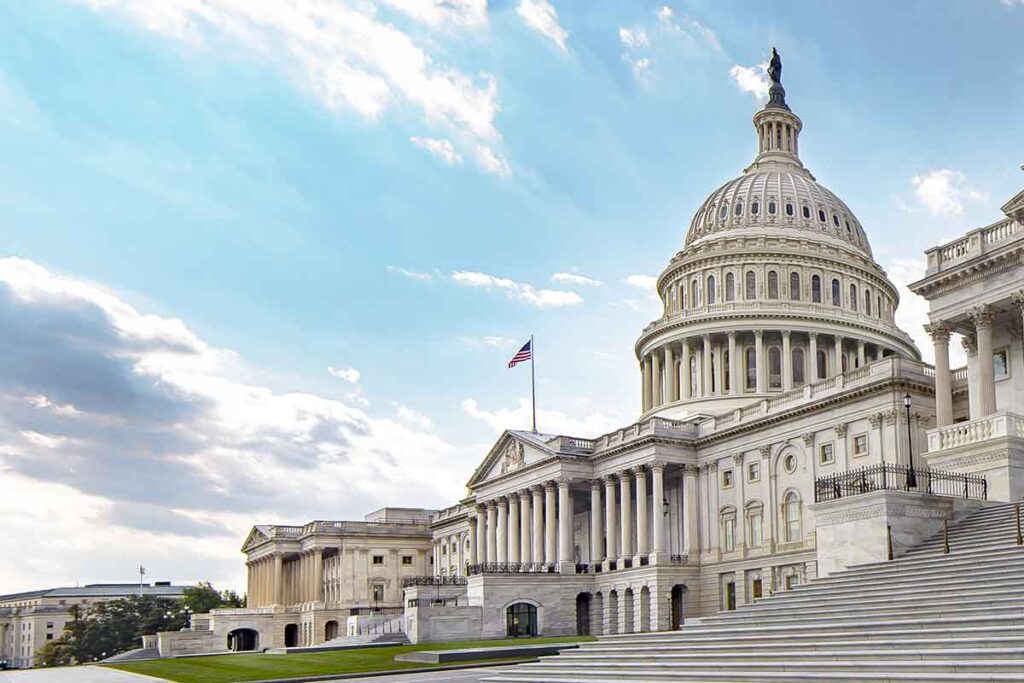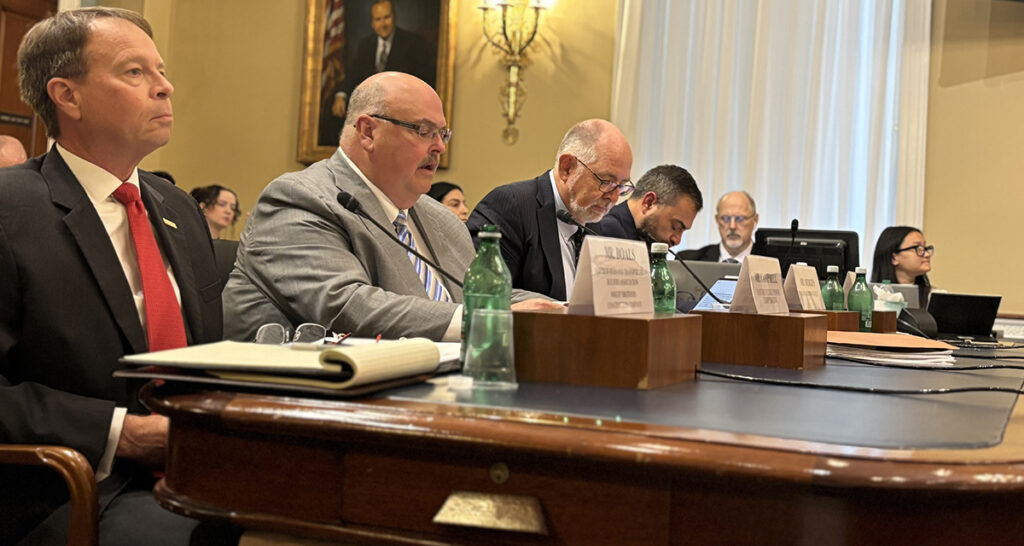
Streamlining the federal permitting process is crucial to ensuring that electric cooperatives can modernize their systems to meet rising demand for electricity and broadband in America’s rural communities, a Kentucky co-op leader told a House panel Tuesday.
“Without permitting reform, it is increasingly likely that our communities will experience more rolling blackouts—something that was unthinkable when I began my career in this industry—while also being forced to pay the costs of project delays,” Tony Campbell, CEO of East Kentucky Power Cooperative, told the House Natural Resources Committee.
“For the people who use the electricity EKPC generates and transmits, power outages mean they are left in the dark and exposed to the cold or heat … Certainly, extended outages during extreme temperatures can become matters of public health and safety, resulting in pain and suffering for the most vulnerable populations.”
Campbell praised the committee for its leadership in passing improvements to the National Environmental Policy Act permitting process as part of the 2023 Fiscal Responsibility Act.
That bill, Campbell noted, included enforceable deadlines for environmental reviews, greater opportunities for co-ops to engage with federal agencies about their projects and a more streamlined process to build projects that are deemed to have a low impact on the environment.
“These changes represent a significant step toward improving the efficiency and predictability of the federal permitting process, helping to accelerate critical infrastructure development,” Campbell told the lawmakers.

Recently, there was more progress on permitting reform as federal agencies—reflecting reforms by Congress and court rulings—released new NEPA procedures that will simplify the process for co-ops to get permits for energy and broadband projects. The changes reflect years of advocacy by NRECA and electric co-ops.
Still, Campbell said, more needs to be done to bolster the impact of those changes. Among the recommendations that Campbell offered on behalf of NRECA:
• Limit unnecessary litigation of NEPA reviews. Currently, anyone who wants to file a lawsuit to challenge a project has up to six years to do so after an agency has given its final approval. This long statute of limitations has been used to block infrastructure investment projects indefinitely, Campbell said. He urged Congress to impose reasonable time limits on litigation.
• Keep NEPA neutral on procedures and technology. As the U.S. Supreme Court reinforced in a recent ruling on NEPA, the law was never intended to dictate policy outcomes, only to ensure an informed decision-making process, Campbell said. Agencies should not be compelled to favor one energy source over another unless required by statute, he said.
• Further clarify the scope of NEPA reviews. NEPA reviews should focus on direct, foreseeable environmental effects that are within an agency’s legal jurisdiction, Campbell said. In the past, he said, agencies too often expanded their reviews far beyond the scope of their authority.
Addressing these problems is important for America’s economy, said Campbell, whose Winchester-based generation and transmission co-op provides power to 16 distribution co-ops that serve over 1 million consumer-members across 89 Kentucky counties.
“There is no scenario in which the United States remains the premier innovator in technology development, the leader in state-of-the-art health care, or the home of industrial strength that is not predicated upon an open, robust and resilient energy infrastructure,” he said. “But accomplishing these things requires using commonsense governance to encourage investment in our energy future.”
Erin Kelly is a staff writer for NRECA.